Over the past several years, Transy, like many other colleges in the nation, has been caught up in a political battle over Title IX guidance.
In April of 2011, the Obama administration issued a Dear Colleague Letter (DCL) on Sexual Violence. The letter provided formal guidance for college campuses on how to appropriately conduct Title IX investigations regarding sexual assault.
As Title IX “prohibits discrimination on the basis of sex in any federally funded education program or activity,” according to the archived letter on the Department of Education’s website, the “ED [Education Department] is issuing the DCL to explain that the requirements of Title IX cover sexual violence and to remind schools of their responsibilities to take immediate and effective steps to respond to sexual violence in accordance with the requirements of Title IX.” The letter was part of a larger Obama-era push to combat sexual assault on college campuses.
As of September of 2017, the Dear Colleague Letter on Sexual Assault was rescinded under the authority of Betsy DeVos, the current Education Secretary. DeVos claims that the letter is unfair, according to a statement released announcing the withdrawal of the letter on the Department of Education’s website, and that the revisions will “help schools as they work to combat sexual misconduct and will treat all students fairly.”
“Schools must continue to confront these horrific crimes and behaviors head-on. There will be no more sweeping them under the rug. But the process also must be fair and impartial, giving everyone more confidence in its outcomes,” said DeVos in the published statement.
The released statement also implied that those accused of sexual assault are charged without enforcement of their rights as a citizen. It claims that “[t]he withdrawn documents ignored notice and comment requirements, created a system that lacked basic elements of due process and failed to ensure fundamental fairness.” The 2011 DCL was issued under a federal provision that allowed for guidance on existing regulations, and the Education Dept. was not required to hold comment or notice periods, as would have been required for new regulations.
Ashley Hinton-Moncer, Transy’s Title IX coordinator, claims that the lack of fair process DeVos emphasizes is pulled from the few schools that do not fully enforce the guidance in the previous DCL.
“There are schools that aren’t doing it well. The pendulum is swinging towards schools who are quick to react, quick to respond, but not giving fair process or due process. She is thinking of those schools and those individuals who got suspended without even knowing what they were suspended for supposedly, or not even knowing what the violations were, and not even having a hearing… And all of a sudden they are kicked out of school and they find out after the fact why. That’s the place where she’s coming from,” said Moncer.
Moncer feels that the current policies at Transy are fair and effectively ensure a due process for all parties involved in a case.
“We follow our process to a T. When you look at our process it is a fair, due process I believe. If you look in our policy, it has the rights of both parties and they are equal. Both parties have the right to appeal,” Moncer said.
“My intentions are always going to be that we have a fair process, and our policy reflects that and my actions reflect that. I work hard to ensure due process and a fair process, so if there is any guidance that comes out that tips that scale in any way to negatively impact resources or accommodations or response or resolution options, then I’m going to ensure that due process continues,” said Moncer.
Although the revised Dear Colleague Letter is not federal law and rather guidance, college campuses have been ignited with concern for the execution of the amended letter. The current DCL, according to some victim advocacy groups and civil rights groups, could silence victims and place priority on the accused.
One such revision in the letter allows schools to decide their standard of evidence.
“For the standard of evidence, it is unlikely that they will mandate a particular standard of evidence, it’s just a matter of a consistent standard of evidence,” said Moncer.
“Betsy Devos’s response is saying you can use clear and convincing or you can use a preponderance of evidence, but what you have to do is use them consistently for all of your policies and procedures. Preponderance of evidence is more likely than not based on everything presented on what happened, and that’s the standard of evidence used in all civil rights violations and cases. Clear and convincing is used for criminal court cases, so its 90 plus percent confidence in the allegations. That’s using hard evidence to prove the complaint every time,” said Moncer “We have at Transy used the preponderance of evidence standard as long as I’ve been an employee here, which is for 15 plus years, and I could guess probably even before that.” This understanding of the standards of evidence is shared by most policy and legal professionals.
In an official statement released from the university, Michele Sparks, Vice President for Marketing & Communications, responded to the fears resulting from the revised DCL and reassured that it will not impact the safety of students at Transy.
“The Department of Education’s ‘Dear Colleague Letter’ doesn’t change our commitment at Transylvania to ensuring the safety of our community members. While we do have policies and procedures to guide our investigations, we know that speaking out can often be an incredibly difficult thing to do,” said Sparks. “We are committed to not only investigating these allegations thoroughly, but doing so with compassion and justice. Sexual misconduct of any kind will not be tolerated on our campus. Our hope is that our policies and procedures allow for not only due process to occur, but that no one would feel silenced or dismissed.”
On November 28th, Kentucky’s Attorney General Andy Beshear lead a discussion on Kentucky’s rape culture and campus sexual assault with Transy faculty and students. His presence solidified Transy’s stance on the current Dear Colleague Letter, asserting that Transy and other Kentucky universities can change the culture nationally, statewide and on campus.
“For too long it’s been accepted and hushed and ignored, not just in Hollywood and D.C., but even in the halls in Frankfort and on our campuses across the country,” said Beshear. “Kentucky, like most of our country, has a rape culture. Our statistics in Kentucky is nearly 1 in 2, nearly 1 in 2 Kentucky women will be subject to some form of sexual violence in their lifetime.” According to the Bluegrass Rape Crisis Center, not only are 1 in 2 women victimized, but 19.6% of men are also.
The attorney general also addressed the wave of fear from victims and victim advocacy groups resulting from the revised DCL.
“I will say that this new guidance is going to open up significant litigation by those offenders who have financial backing, that it is going to result in more successful outcomes for them. Unless a university embraces a higher floor, there will be fewer protections for students. I believe the outrage is fully merited,” said Beshear.
Beshear discussed the efforts made by his own office to change the culture in Kentucky, from allocating funds to remove the rape kit backlog, a “national shame” according to Beshear, to suing three Kentucky universities in an attempt to hold them accountable for contributing to the rape culture in Kentucky.
The University of Kentucky, Western Kentucky University, and Kentucky State University were all sued by the attorney general. Beshear demanded transparency of evidence and circumstance in sexual assault cases hidden by the specific universities, expecting them to release all knowledge of the events that transpired in cases of sexual violence as a form of accountability.
“I’ve also been willing to step up and hold accountable our universities when they won’t embrace what is necessary to change culturally. They believe that they don’t have to be accountable,” Beshear said.
“College should be a time of learning. It ought to be a time when you’re expanding your mind. It ought it be a time when your future is so bright, and the possibilities are limitless. It ought to feel like a path to prosperity. But when 1 in 5 women and 1 in 16 men are sexually assaulted while on college campuses, we know that that is not happening for our students,” said Beshear.
The attorney general targeted specific amendments made in the revised letter, commenting on the emphasis laid on the rights of assailants and how those were effectively addressed in the version of the letter from 2011.
“They’re [the accused] not the most important person in the crime. You are. The student, the victim, the survivor. The most important thing is to get you the services that you need and the justice at the time that you want,” Beshear said.
“Betsy DeVos, specifically, has played a role and is playing a role in potentially pulling back some of the most important protections that we have created for students. These were created over years of years of study and dialogue, with not just one group, but everybody in the process that may be involved,” Beshear said. “Years were spent on what type of protections everybody in the system has. Pulling it back, changing it in the way they’re trying to do it in D.C. will make our students less safe.”
Beshear emphasized the impact Kentucky universities are able to have nationally and campus-wide, asserting that resisting the new guidance provided in the DCL will inspire conversations in colleges nationally.
“The Department of Education may not care about protecting survivors, but it’s my job. And it ought to be theirs,” Beshear said. “If they suggest doing less, Transylvania and every other Kentucky university can do more. This University has a choice. It has a choice in how they want to go about their Title IX investigations and processes. It has a choice in what type of culture it wants to push.”
“This is going to a time when I think Kentucky has an ability to shine. While the Department of Education may strip away protections, If we not only keep them and add to them, we can be a national model,” Beshear said. “It’s our decision on what our culture is going to be.”
Though a public comment period on the updated letter has been promised by DeVos, no such period has been announced.



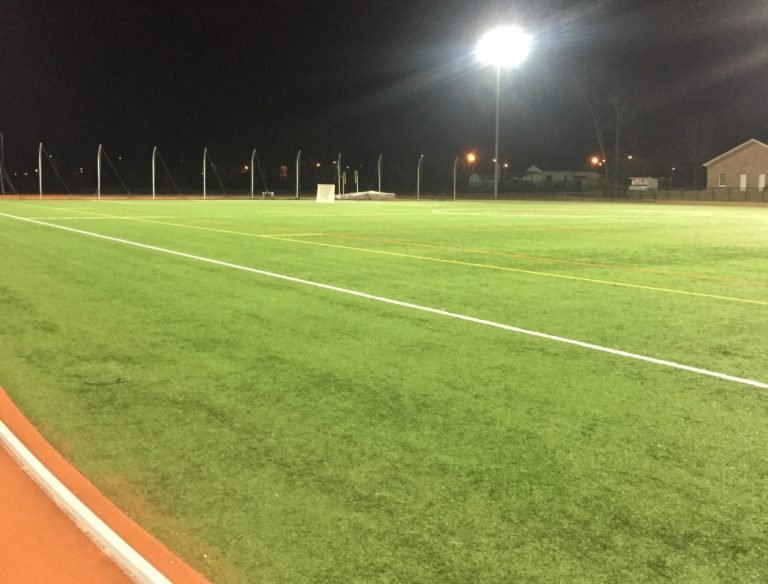





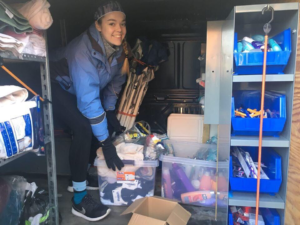


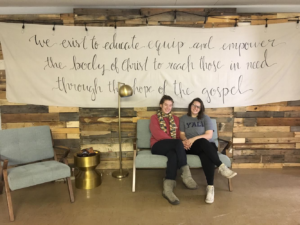

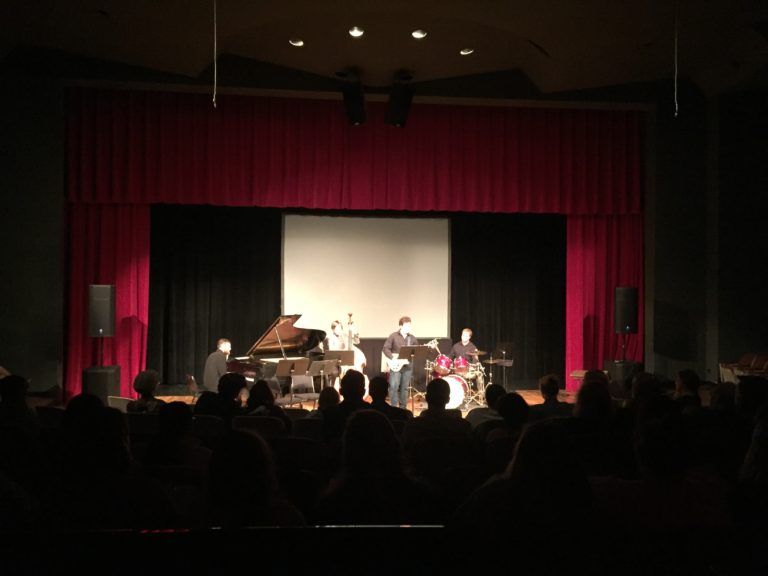
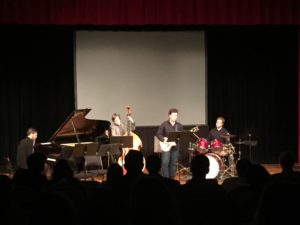
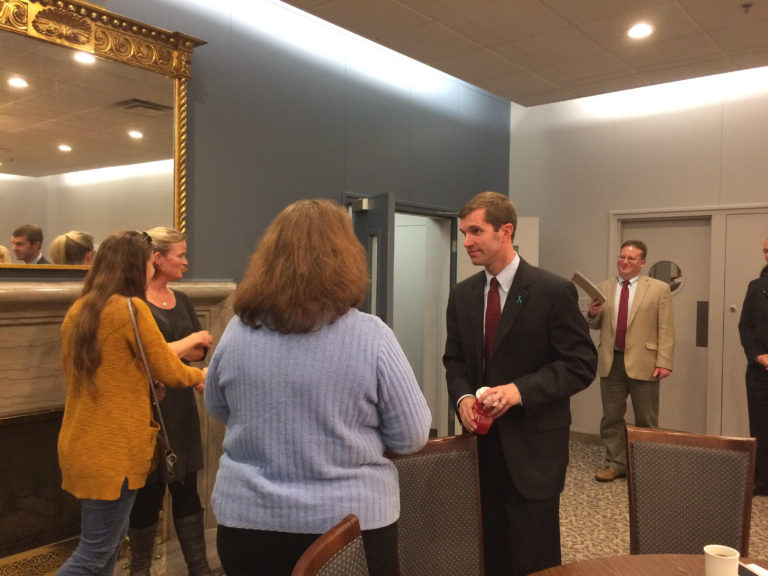




Strengthening Math Requirements
I’m sure most of us students have, at one point or another, cursed the university for the math requirement. I fully admit that I am biased in this matter, as a math major, and as a lover of learning. One of the things I’ve heard most often when I tell someone that I’m majoring in math is either “I’m sorry” or “I couldn’t do that.” Personally, I disagree with both of those. Anyone can do mathematics and be successful in a math field. Math can be represented as a series of problems that want or need to be solved. Each problem can be solved in an infinite number of ways. 2+2 can be rewritten as 2+2+5-5 or 4+0 or 8-4; each expression has the same answer, 4, but they all use a combination of different operations and numbers. Each question you come across can be manipulated into something else that has the same answer, but each question could be wildly different in terms of difficulty. One of the things I love about math is that it shows you how to change the problem into something you know how to deal with, which is something that can be applied to any aspect of life.
Being successful in math just takes a separate bit of thought. Math requires its own set of outlooks and patterns, and once you’ve been exposed to those patterns, they can help you more easily understand patterns and concepts in other disciplines. That is why I believe that, rather than just having a one-course requirement, our students should be required to take Calculus (Calc) I, Calc II, and Mathematician’s Toolkit.
Currently, the requirement is filled by taking one of four classes: Intro to Contemporary Math, Elementary Statistics, Calc I, or Calc II. Personally, I believe that all of these classes are helpful and useful in the education of our students. Calculus is one of the most well-known branches of math, and thus much of higher math courses and research rely on calculus as a starting point and a base knowledge. Because of this, calculus can be one of the most helpful math courses in developing a student into a mathematician.
However, the class that I enjoyed the most, and got the most out of, was Mathematician’s Toolkit. This class teaches students how to write a mathematical proof, the different methods and strategies for planning out and following through with your reasoning. It introduces the basic foundations of many higher math topics such as set theory and functional relations.
This is not only helpful to those who wish to study math rigorously but also those in any discipline. All disciplines, from biology to accounting to philosophy to English, require you to justify your work or your position in some way. Mathematician’s Toolkit allows for students to see different ways that points or arguments can be proven or disproven. For example, in order to disprove a statement like “all dogs are nice,” one only needs to find a mean dog, but to disprove a statement like “some dogs are nice,” you would need to show that all dogs are not nice.
I firmly believe that there is some part of math that anyone will enjoy and be passionate about. Whether or not someone finds that topic is another issue entirely. Math can help you understand biological systems, poetry, historical theories, and writings. Math is a universal language that can bring people together all over the world. Even if high school geometry wasn’t your thing, maybe set theory (the ways you can put together different groups of numbers) or the cardinality of infinity (how big each infinity is) will be. And if algebra made you want to set your homework on fire, maybe topology (how numbers and shapes work in a physical space) or geometric solids (think of all the shapes that dice come in) will be your thing. But it is certain that you won’t be able to find your area of interest if you don’t look.
Mathematician’s Toolkit acts as a springboard to find the part of math that will make you fall in love with the universe again (or even for the first time). You can find more information about the class here, on the listing in the course catalog.